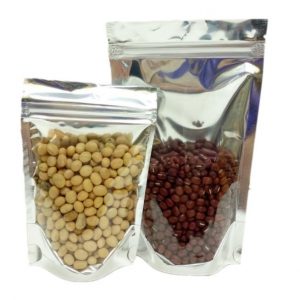Reducing plastic waste with biodegradable pouches is a positive step towards minimizing the environmental impact of packaging. Biodegradable pouches are designed to break down naturally over time through microbial decomposition, ultimately turning into natural elements like water, carbon dioxide, and biomass. This process helps to avoid the long-lasting harm caused by traditional plastic that can persist in the environment for hundreds of years.
Here are some key benefits of using biodegradable pouches to reduce plastic waste:
- Environmentally Friendly: Biodegradable pouches are made from renewable resources, such as plant-based materials like cornstarch or sugarcane. Using these pouches reduces reliance on fossil fuels and decreases the overall carbon footprint.
- Reduces Plastic Pollution: Since biodegradable pouches break down naturally, they are less likely to end up as litter in oceans, waterways, and landfills, significantly reducing plastic pollution and its harmful effects on wildlife.
- Sustainable Packaging: Biodegradable pouches contribute to more sustainable packaging practices, aligning with the principles of the circular economy, where materials are designed to be reused, recycled, or naturally decomposed.
- Consumer Awareness: Using biodegradable pouches can raise awareness among consumers about the environmental impact of traditional plastics and encourage more eco-conscious purchasing decisions.
- Composting Potential: Biodegradable pouches can be composted along with organic waste, turning them into valuable compost that enriches soil fertility and supports sustainable agriculture.
- Regulatory Support: In some regions, there might be regulatory incentives or initiatives promoting the use of biodegradable and compostable packaging over traditional plastic materials.
However, it’s important to consider some challenges and considerations:
- Proper Disposal: Biodegradable pouches require specific conditions to decompose correctly, such as the right temperature and humidity found in industrial composting facilities. If they end up in a regular landfill or the environment, they may not degrade as intended.
- Certification: Look for reputable certification labels like “ASTM D6400” or “EN 13432,” which ensure that the product meets certain biodegradability and compostability standards.
- Resource Impact: While biodegradable pouches have advantages over traditional plastics, they still consume resources during production. It’s essential to strike a balance between resource use and environmental benefits.
- Public Education: Proper consumer education is necessary to ensure that biodegradable pouches are disposed of correctly and do not end up contaminating recycling streams or littering the environment.
In conclusion, biodegradable pouches offer a promising solution to reduce plastic waste and its environmental impact. However, it’s crucial to consider the full life cycle of these pouches and implement appropriate waste management practices to maximize their benefits and minimize potential drawbacks.













